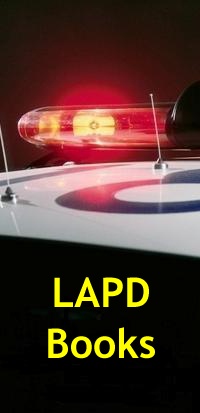|
According to the book description of False Negatives, "The year
is 1972. America is awash in violence, and Los Angeles is drowning in it. The
gruesome Tate-LaBianca slayings by the Manson Family attempting to ignite a
Helter Skelter race war remain front page news as the bizarre trial unfolds.
With the hot embers of racial hatred that ignited the Watts Riots still
smoldering just below the surface, the tension makes LAs smoggy air even harder
to breathe. Most folks go about their daily routines and simply hope for the
best.
Max Stoller isnt like most people. Confident he can make a difference, and
anxious to test his mettle, the naive idealist joins the Los Angeles Police
Department. The job will challenge more than his courage and integrity. It will
drive him to question who he is as he struggles to tell the good guys from the
bad.
In the words of Max Stollers training officer. "Experience is a hell of a
teacher." It is time to go to school."
According to the book description of Black and White, it
"doesn't fit neatly into a genre. Calling it a police procedural, mystery,
political thriller, or historical fiction would all be appropriate. If you like
the early works of Joseph Wambaugh, the HBO series The Wire, or the Bosch saga;
you'll love Black and White. Although Black and White is a sequel to False
Negatives, both novels stand alone. Black and White continues following a naive,
conflicted college educated white officer who teams up with his academy
classmate, an older, under-educated African-American. Largely written in the
first person present tense, the author doesnt tell the story. The prose
immerses the reader in the action, whether fighting prisoners in the jail, or
getting shot at while patrolling the mean streets of Shootin Newton Division.
But the drama doesnt stop with the cops on the beat. Again from the first
person perspective, the reader experiences the political intrigue and chicanery,
not only at the police station, but at city hall. While this story is fiction,
the historical references are all true, making this novel as relevant today as
it was fifty years ago."
|
